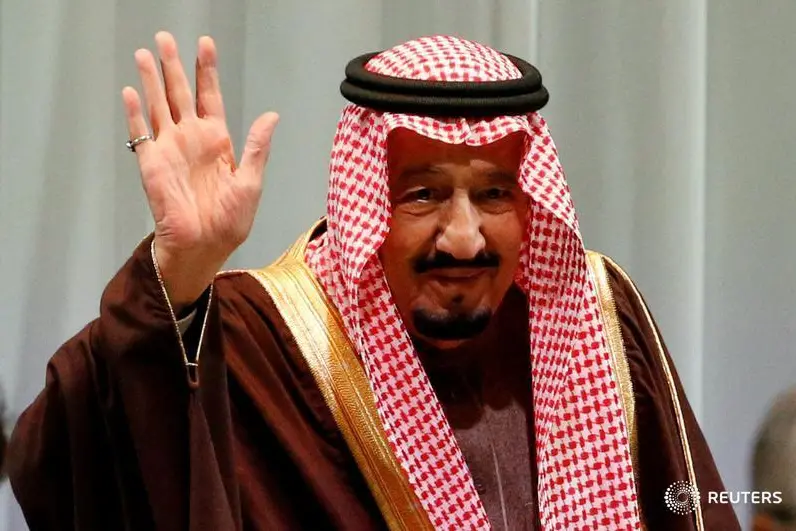PHOTO
21 May 2017
By FRANK KANE
THE DEAD SEA, Jordan: The economic diversification strategy underway in Saudi Arabia will transform the country and is its best hope for the future, according to Khaled Biyari, chief executive of the Saudi Telecom Company (STC).
Biyari was speaking at the ongoing World Economic Forum (WEF) meeting for the Middle East and North Africa, held at the Dead Sea resort in Jordan, on a panel on the subject of the “peace-prosperity nexus.”
Asked whether the National Transformation Program (NTP) 2020 and the Vision 2030 — the two strategic plans to move the country away from oil dependency toward a more diversified economy — would succeed, he said there was no alternative.
“The amount of positive energy that the NTP and the Vision 2030 have brought into the country is something I have never seen before in my life. The government is very determined to achieve the key performance indicators outlined in the plans, and every government department is working day and night to get there. The success of the plans is the only option for us as a nation.”
Biyari said that he had three messages. “The first is one of hope. The young population of the Middle East brings energy and talent, and that is fuel for the future,” he said.
“Second, a note of caution. The policies of the last century will not be applicable in the future. We have to focus on getting the right regulations and governance.
“Third, a message to the shareholders. We need to bring about benefits for the population. Digitalization can help the country leapfrog and can impact education, healthcare, even farming. The private sector must adapt, or it will be swept away,” he said.
The panel discussed the “peace dividend” that might come if the region’s conflicts are resolved.
Borge Brende, the minister of foreign affairs for Norway, said that the Middle East “could count on Norway for investment, especially in education, where the county had doubled its overseas aid in the past three years.”
Brende also revealed that Norway would open an embassy in Tunisia later this year. “Democracy here is fragile and has to be supported. We will also provide more support for Lebanon and Jordan,” he said.
Ursula von der Leyen, the German defense minister, told the panel that economic progress was dependent on security and safety. “We have to fight Daesh, of course, but also we have to fight the extremists of the far right in Europe,” she said.
Philippe Le Houérou, CEO of the International Finance Corporation of Washington, said that the private sector had to be involved to facilitate economic growth, integration and entrepreneurship in the region.
“The ecosystem has to be right for entrepreneurs here. If it is not supportive entrepreneurs will leave the region and take their talent somewhere else,” he added.
By FRANK KANE
THE DEAD SEA, Jordan: The economic diversification strategy underway in Saudi Arabia will transform the country and is its best hope for the future, according to Khaled Biyari, chief executive of the Saudi Telecom Company (STC).
Biyari was speaking at the ongoing World Economic Forum (WEF) meeting for the Middle East and North Africa, held at the Dead Sea resort in Jordan, on a panel on the subject of the “peace-prosperity nexus.”
Asked whether the National Transformation Program (NTP) 2020 and the Vision 2030 — the two strategic plans to move the country away from oil dependency toward a more diversified economy — would succeed, he said there was no alternative.
“The amount of positive energy that the NTP and the Vision 2030 have brought into the country is something I have never seen before in my life. The government is very determined to achieve the key performance indicators outlined in the plans, and every government department is working day and night to get there. The success of the plans is the only option for us as a nation.”
Biyari said that he had three messages. “The first is one of hope. The young population of the Middle East brings energy and talent, and that is fuel for the future,” he said.
“Second, a note of caution. The policies of the last century will not be applicable in the future. We have to focus on getting the right regulations and governance.
“Third, a message to the shareholders. We need to bring about benefits for the population. Digitalization can help the country leapfrog and can impact education, healthcare, even farming. The private sector must adapt, or it will be swept away,” he said.
The panel discussed the “peace dividend” that might come if the region’s conflicts are resolved.
Borge Brende, the minister of foreign affairs for Norway, said that the Middle East “could count on Norway for investment, especially in education, where the county had doubled its overseas aid in the past three years.”
Brende also revealed that Norway would open an embassy in Tunisia later this year. “Democracy here is fragile and has to be supported. We will also provide more support for Lebanon and Jordan,” he said.
Ursula von der Leyen, the German defense minister, told the panel that economic progress was dependent on security and safety. “We have to fight Daesh, of course, but also we have to fight the extremists of the far right in Europe,” she said.
Philippe Le Houérou, CEO of the International Finance Corporation of Washington, said that the private sector had to be involved to facilitate economic growth, integration and entrepreneurship in the region.
“The ecosystem has to be right for entrepreneurs here. If it is not supportive entrepreneurs will leave the region and take their talent somewhere else,” he added.
© Arab News 2017





















